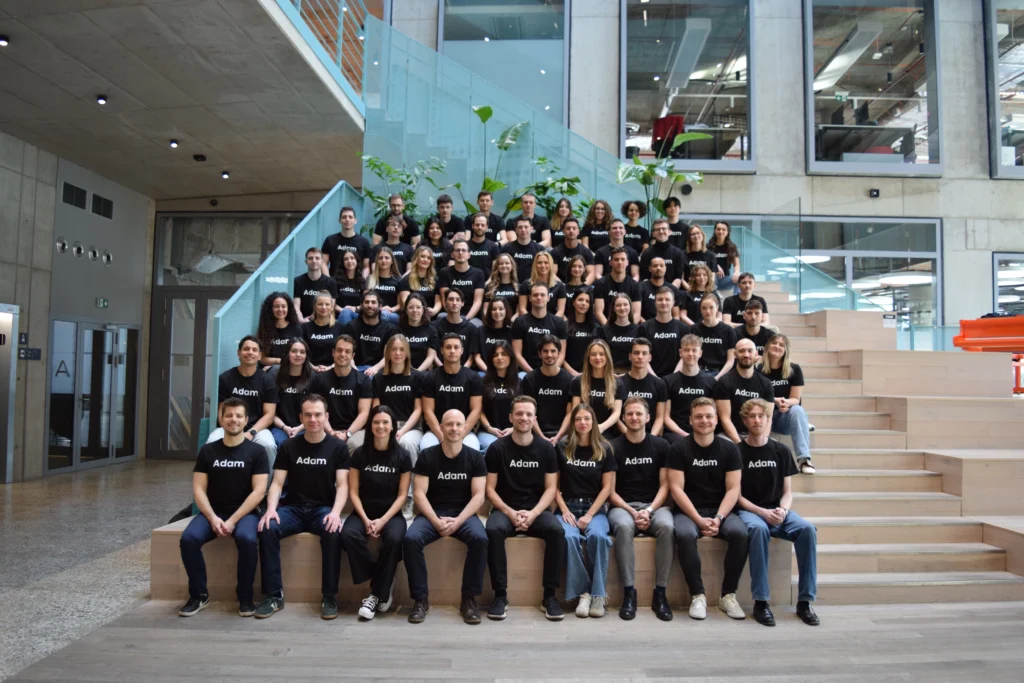It is quite simple. Founded as a direct result of the EU’s “Startup Nations Standard” declaration in March 2021, ESNA is committed to transforming Europe’s startup landscape by fostering a robust, interconnected, and competitive entrepreneurial environment that drives innovation and economic prosperity across the continent.
Imagine, that you put on one table Irish whisky, Czech dumplings, Greek tzatziki, Swedish crayfish or Portuguese seafood. How it looks like together? We asked Marketa Prenosilova, former Chairwomen of the Board and member of ESNA representatives in Europe. She is one of the Czech delegates who is trying to set up the processing, standards and knows the ingrediencies. Chili peppers? Olives? Balkan cheese? Let’s see what are the right components!
Hello Marketa, thank you for joining us!
Hello there and happy to be here.
Marketa, why ESNA have started to write the cook book for European Startup world? What was the main point?
Well, usually when you are trying to cook something from scratch it can be a disaster. Therefore, is always better to have a cookbook, something that helps you cook the most delicious food. I mean when you are an expert, chef master you probably don’t need it anymore, but when you are just a starting chef, is better. Therefore, ESNA was established. There was no other institution on the European level focused only on startups and scaleups and its environment. Yes, there are some policies, private initiatives, national institutions as well but zero on the EU level or with special dedication to startups. What differentiates ESNA is a clear political mandate. Which means that ministries responsible for SME and/or innovation signed it and they gave a mandate to national players (CzechInvest in Czechia) to be members of ESNA. 26 member states signed a “EU Startup Nations Declaration” which includes eight standards of excellence, sort of benchmark for evaluation countries’ performance in startup-friendly policies. Standards tend to implement best practices in policy-making, driving forward the success of startups whether they are based in Portugal or in Estonia. I was there at the inception and later became Chairwoman of the Presidency Board. It was an exciting journey to see build such an organization from scratch, lot of nerves, discussions with politicians, waiting months for response, but finally after almost two years, ESNA was establish, received first funding from Portuguese government and European Commission and its mission could start.
Do you think that all Chefs can cooks together? What about different spices and cultures and habbits? How does it goes together?
Czech Republic is a small market, which means that if you want to build a successful international company you have to go abroad. Therefore, single EU market is so important if we do not want our companies to move to U.S. or elsewhere. The problem is fragmentation. There are still different conditions in establishing a company, paying taxes, employment, access to capital, digital services etc. ESNA serves as a crucial platform, promoting best practices, sharing knowledge, and ensuring that European startups have equal conditions and opportunities so they can thrive globally from Europe. Also, communication is very important. The great thing about it is that we can learn from each other, from other member states and see how they are implementing policies and best practices, what´s worth it or what is a “fuck up”. There are some similarities but also differences. Some countries have a better policy thanks to their direct access to policy decision-makers – in Estonia they are supported directly by prime minister, in France by president. Some of them have a National Startup Strategies which makes easier to enforce the necessary changes. Some of them have a strong Business Angels network and support which allows for the creation of a larger number of startups and thus a greater chance that one of them will become a unicorn. ESNA also established a so-called “hot line” for members who are seeking those best practices. We are currently working of ESOP schemes and Pension Funds supports. Also, a national Coordinating Council of Investors and Startups was established in October. Its aim is to connect national players from both private and state sectors to work together to implement startup standards in Czechia. Its working groups will be active in bringing potential solutions.
I see. They have one target! What do you think about Czech cooking? Are we cooking well?
ESNA issues a yearly report about the implementation of standards in each country. In the 2023 edition Czechia fulfill 35 % percent, which means we are in the last quarter of the states. We stand surprisingly good in access to finance, talent attraction, innovation procurement and digital first. On the other hand, we have a lower performance in standards such as employee stock options, diversity and social inclusion, fast creation of the company and innovation in regulation. We have some good examples such as risk finance supporting. The Ministry of Industry and Trade together with European Investment Fund will established a several funds for pre-seed and seed investment. E.g. Pilot co-investment funds for the development of pre-seed investments, strategic technologies (such as AI, blockchain, fintech, 5G, etc.) and university spin-offs within the European Centers of Excellence, in whose first call “Artificial Intelligence for a Safer Society” succeeded by a consortium of leading Czech technical universities. Also, EIB Group supports local companies in strengthening regional development, supporting SMEs and mid-cap companies. total, the EIF has already invested in 17 venture (VC) and development capital (PE) funds in the Czech Republic, to which it has so far provided a total of 334 million euros. On the other hand, there is no specific support for Business Angels.
We also do have a startup visas, which is a faster and easier visa process for key specialists (e.g. programmers, managers) for Czech startups. CzechInvest is the guarantor of the Key and Scientific Personnel Programme for startups. In innovation procurement and tech transfer we might perform better. There are no legislative burdens, and it is mostly about the willingness of key persons within government how to award public contracts for innovative solutions and universities how to support spin-offs. The main obstacles also include fear of failure and lack of the best practices. From 2021 you can establish a company faster and easier online from your home, and since 2022 even faster. Thanks to the Citizen Portal service, one of the public administration websites of the Ministry of the Interior, the possibility of establishing a limited liability company online has been added.
So we are moving ahead, but not fast enough… therefore only 35 % of success rate.
What is your recipe?
I guess to have a positive attitude and data, data, data. Because when you have data, you can make a better decision and then it´s easier to have an argument and have an adequate discussion about it. And positive attitude because lot of things take a time and you need to know your mission and purpose, why are you doing this, which helps you to stay resilient to obstacles and failures.
Thank you so much, Marketa. You are doing fantastic job!
Thank you for inviting me and good bye!









